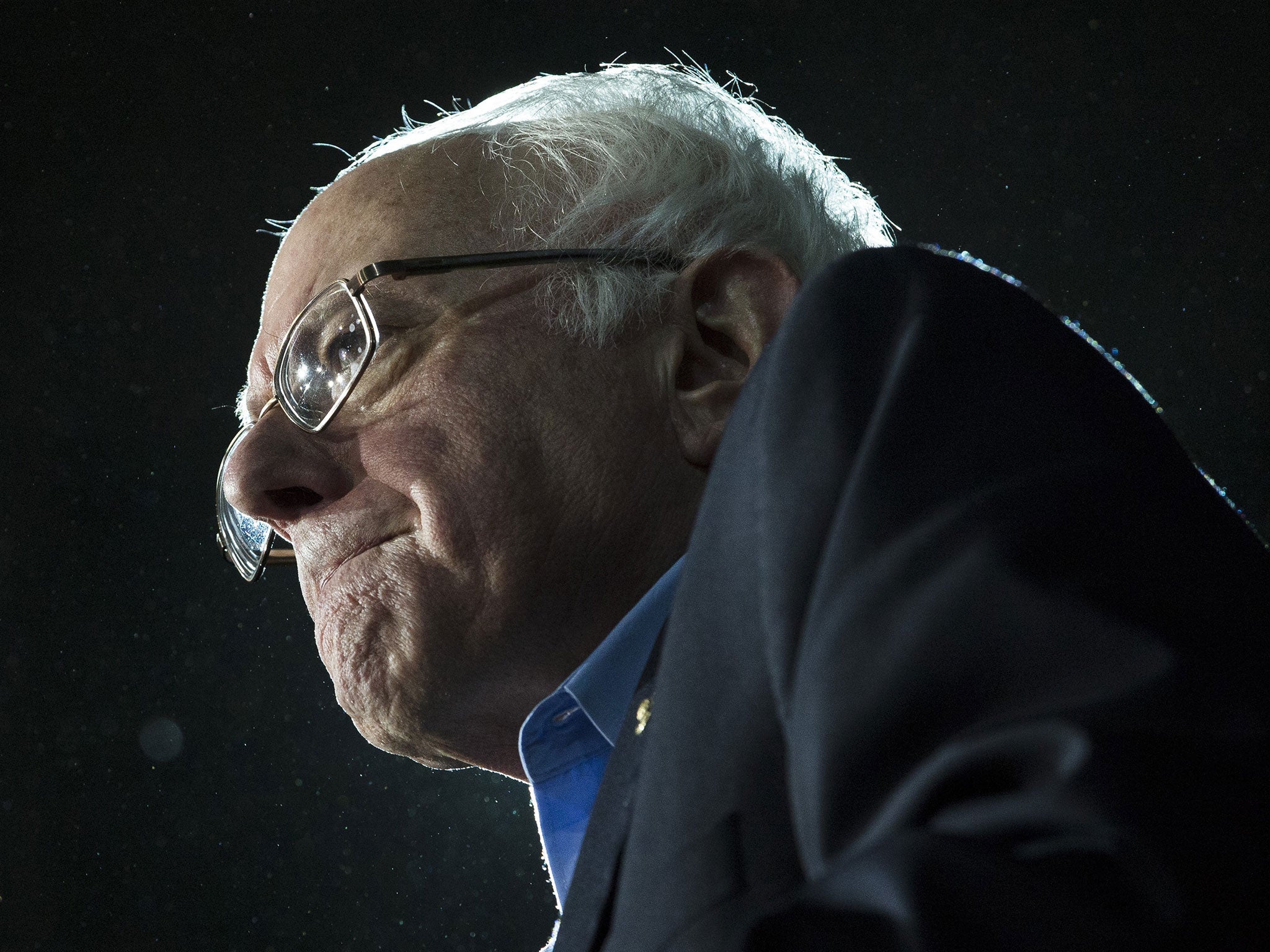Bernie Sanders: Median income would soar and poverty would fall under Democrat policies, study finds
An economist found that median income would increase by $22,000 if Bernie Sanders gets to the White House

Average family income would jump by $22,000 per year and unemployment would fall to 3.8 per cent if Vermont Senator Bernie Sanders is elected as president, a new study has found.
The report, carried out by Gerald Friedman, an economics professor at University of Massachusetts Amherst, found that 26 million jobs would be created under Mr Sanders, and poverty would drop to 6 per cent, instead of 13.9 per cent, as forecasted by the Congressional Budget Office (CBO).
The findings on Mr Sanders’ spending and tax proposals, given to CNNMoney, also reveal that the US economy would grow by 5.3 per cent per year under Mr Sanders rather than the CBO’s projected 2.1 per cent.
This is because Mr Sanders would enact several economic policies, including making college free, raising taxes on median income families by around $500 and scrapping health insurance premiums.
Mr Sanders would pour $14.5 trillion into the economy, spending on infrastructure, youth employment, increasing Social Security benefits and expand family leave in order to give a boost to GDP and productivity. He would raise the minimum wage and hike taxes on the rich and corporations.
The overall cost of his Medicare-for-all plan would be $13.8 trillion over 10 years, as estimated by Mr Friedman.
Although the report was not commissioned or paid for by Mr Sanders’ campaign, Mr Friedman and the Senator have worked together in the past. Mr Friedman also believes in democratic socialism and has not been paid by Mr Sanders.
“Like the New Deal of the 1930s, Senator Sanders' program is designed to do more than merely increase economic activity,” Mr Friedman wrote. It will ”promote a more just prosperity, broadly-based with a narrowing of economy inequality.”
The broad thesis relies on government spending, which creates demand on businesses, leading to hiring more people, people then spending more money, resulting in other firms hiring more people.
Not all economists agree with the findings. Last week the Committee for a Responsible Federal Budget said Mr Sanders’ plan to pay for health care would fall short by $3 trillion to $14 trillion, driving debt to GDP ratio to between 100 and 150 per cent.
Economists have questioned the growth rate projection of 5.3 per cent, saying that boosting spending only works in the short term for a weak economy, and it would be hard to hit that number after inflation - a record which has not been hit since the 1960s.
Other presidential candidates’ economic plans have been billed as “overly optimistic”, like Donald Trump and Jeb Bush’s proposed drop in taxes being buoyed by rising GDP growth rates of 4 per cent.
Senator Sanders has raised almost three-quarters - 70 per cent - of his latest round of campaign funding from small donors, a much higher proportion than any other candidate, and he is also the only candidate to pay his interns.
Ben Cohen, one of the founders of ice cream company Ben & Jerry's, created a new flavour called "Bernie's Yearning" to symbolise the Senator's desire to distribute wealth from the top few per cent to the less rich segments of society.
Join our commenting forum
Join thought-provoking conversations, follow other Independent readers and see their replies
Comments
Bookmark popover
Removed from bookmarks